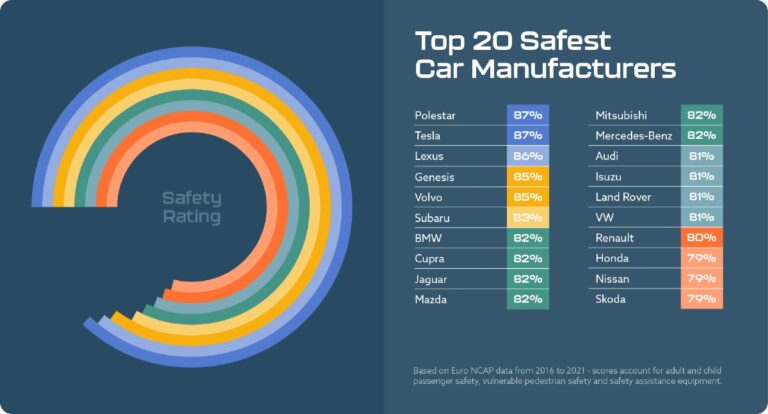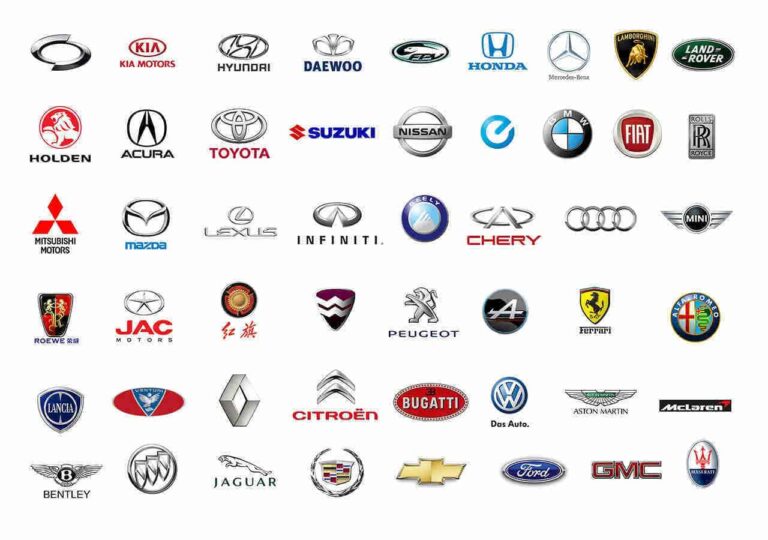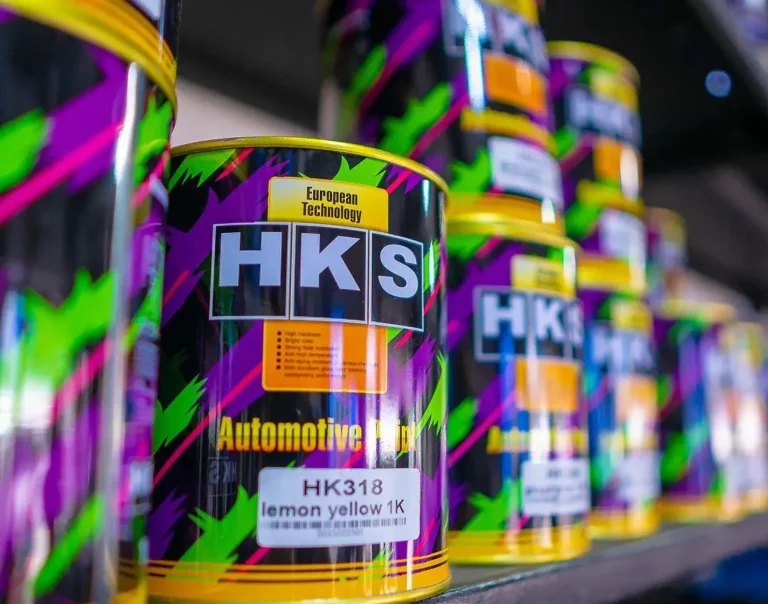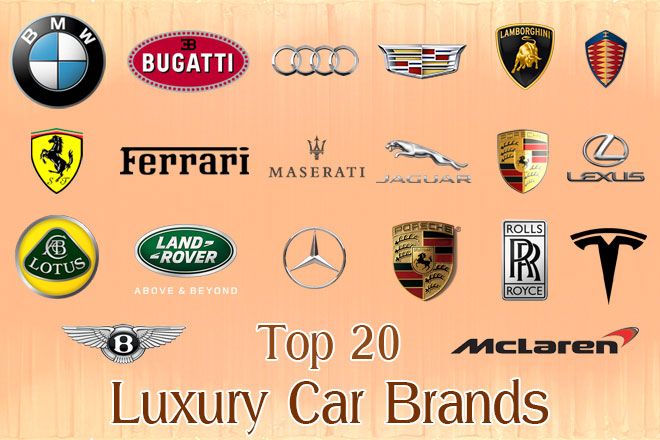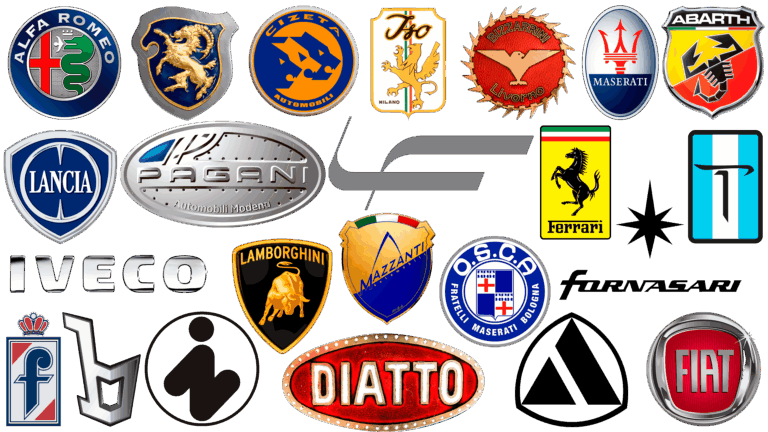Best Car Brand To Buy: A Comprehensive Guide to Choosing Your Perfect Ride
Best Car Brand To Buy: A Comprehensive Guide to Choosing Your Perfect Ride cars.truckstrend.com
The quest for the "best car brand to buy" is a journey many embark on, often fraught with countless options, conflicting advice, and the sheer weight of a significant financial decision. The truth is, there isn’t a single, universally "best" car brand. What constitutes "best" is profoundly subjective, depending entirely on an individual’s unique needs, budget, lifestyle, priorities, and personal preferences. For a bustling family, safety and space might top the list; for a daily commuter, fuel efficiency and reliability could be paramount; while a performance enthusiast might prioritize horsepower and handling.
This comprehensive guide aims to demystify the process of choosing the ideal car brand for you. We’ll delve into the critical factors that define a good car brand, explore leading contenders known for specific strengths, and provide practical advice to navigate the buying process. By understanding what truly matters to you and how different brands excel, you can confidently determine the best car brand to buy for your own circumstances.
Best Car Brand To Buy: A Comprehensive Guide to Choosing Your Perfect Ride
Understanding Your Needs and Priorities: The First Step to the "Best"
Before you even begin looking at car brands, the most crucial step is to look inward. A clear understanding of your own requirements will serve as your compass, guiding you through the vast automotive landscape.
How to Define Your Perfect Match:
-
Establish Your Budget: This isn’t just about the purchase price. Consider:
- Upfront Cost: How much can you comfortably spend on the car itself?
- Fuel Efficiency: Higher MPG/lower kWh consumption means less spent on fuel over time.
- Insurance Costs: Premiums vary significantly by brand, model, and even color. Research quotes for potential vehicles.
- Maintenance & Repair: Some brands are notoriously more expensive to maintain than others. Factor in routine servicing and potential parts costs.
- Depreciation/Resale Value: How much will the car be worth when you sell or trade it in? Brands with strong resale values offer better long-term financial sense.
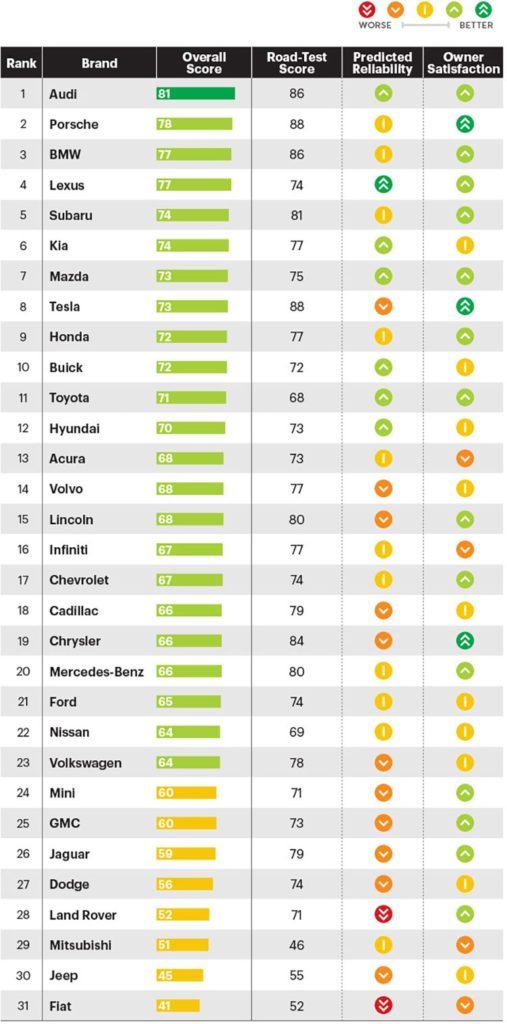

-
Analyze Your Lifestyle and Driving Habits:
- Commute: Is it short city driving, long highway stretches, or a mix? This impacts fuel type (gas, hybrid, EV) and comfort needs.
- Family Size: Do you need seating for five, seven, or more? Is cargo space for strollers, sports gear, or groceries a priority?
- Terrain: Do you regularly drive on unpaved roads, in snowy conditions, or require off-road capability? All-wheel drive (AWD) or four-wheel drive (4WD) might be necessary.
- Towing Needs: If you plan to tow a boat or trailer, truck or larger SUV brands will be on your radar.
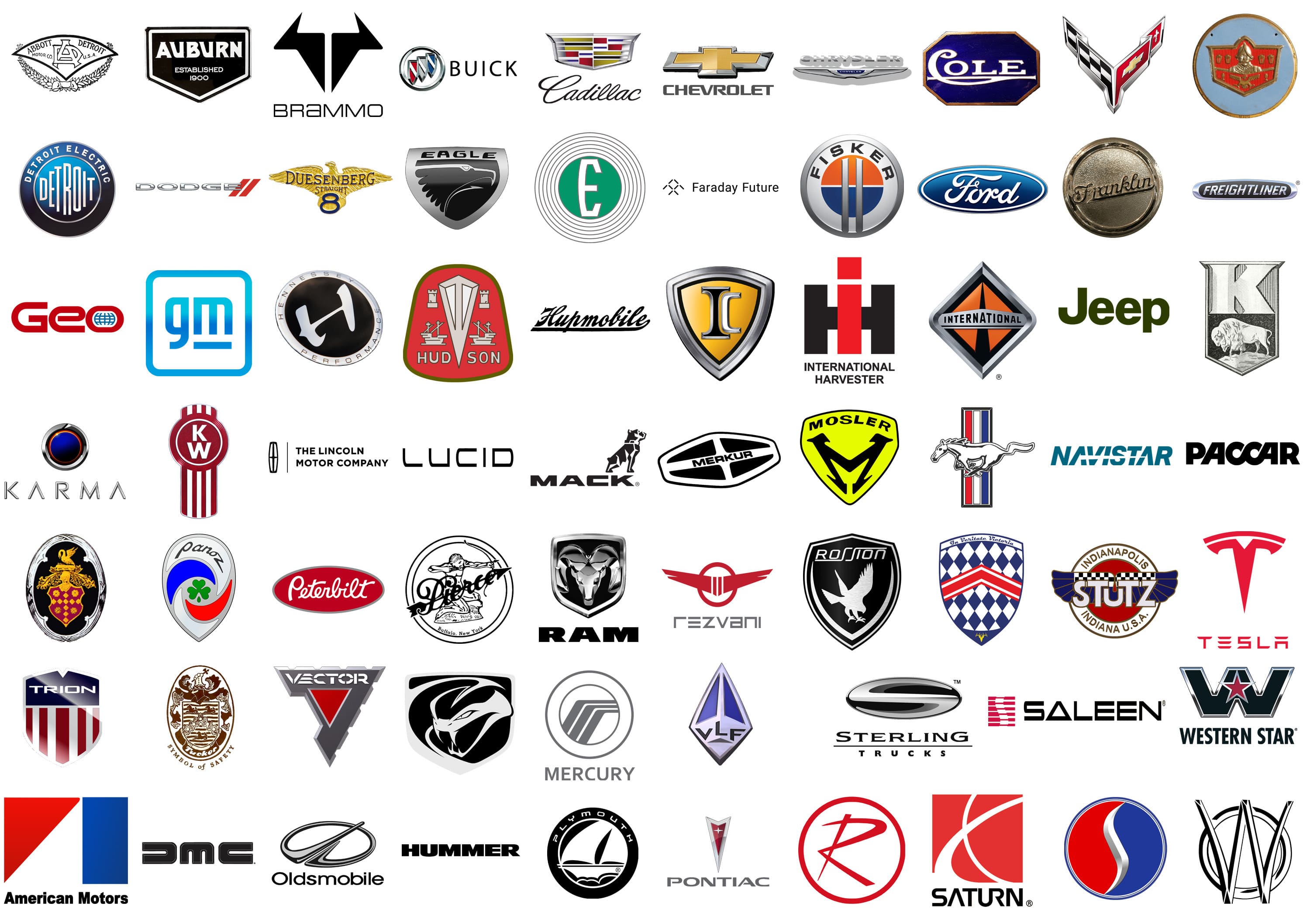
-
Determine Your Preferred Vehicle Type:
- Sedans: Great for city driving, fuel-efficient, often stylish.
- SUVs (Sport Utility Vehicles): Versatile, higher driving position, available AWD, varying sizes.
- Trucks: Unmatched towing and hauling capacity, robust.
- Hatchbacks: Practical, compact, good cargo space for their size.
- Minivans: Ultimate family haulers with unmatched passenger and cargo versatility.
- Electric Vehicles (EVs): Environmentally friendly, lower running costs, evolving charging infrastructure.
-
Prioritize Key Features: Make a list of "must-haves" versus "nice-to-haves."
- Safety: Advanced Driver-Assistance Systems (ADAS) like automatic emergency braking, lane-keeping assist, blind-spot monitoring. High crash test ratings (NHTSA, IIHS).
- Technology & Infotainment: Touchscreens, smartphone integration (Apple CarPlay/Android Auto), navigation, premium sound systems.
- Comfort & Convenience: Heated seats, power liftgate, keyless entry, panoramic sunroof.
- Performance: Engine power, acceleration, handling, driving dynamics.
Practical Advice: Create a detailed checklist. Assign weights to each priority (e.g., budget is 5/5 importance, specific tech feature is 3/5). This structured approach will make comparing brands and models much easier.
Key Factors Defining a "Good" Car Brand
While individual needs vary, certain attributes consistently define a strong car brand in the eyes of consumers and experts alike. Understanding these factors will help you evaluate potential candidates.
- Reliability & Durability: This is often the cornerstone of a "best" brand. Reliable cars break down less, require fewer unscheduled repairs, and tend to last longer. Look at independent ratings from organizations like J.D. Power (Vehicle Dependability Study) and Consumer Reports, which survey owners on issues encountered.
- Safety: A brand’s commitment to safety is paramount. Research crash test ratings from the National Highway Traffic Safety Administration (NHTSA) and the Insurance Institute for Highway Safety (IIHS). Also, consider the standard and available ADAS features a brand offers across its lineup.
- Innovation & Technology: Leading brands consistently push boundaries with new technologies, from advanced infotainment systems and connectivity features to cutting-edge powertrain options (hybrid, EV) and autonomous driving capabilities.
- Driving Experience: This encompasses everything from engine performance and handling dynamics to ride comfort, quietness of the cabin, and overall driver engagement. Some brands are known for sporty performance, while others prioritize smooth, luxurious rides.
- After-Sales Service & Dealership Network: A strong dealership network means easier access to service, parts, and warranty work. The quality of customer service at dealerships can significantly impact your ownership experience. Look for reviews of local dealerships.
- Resale Value: Brands that hold their value well minimize your depreciation cost, making them a smarter long-term investment. This is often linked to reliability and brand reputation.
- Brand Reputation & Customer Satisfaction: Public perception, owner loyalty, and overall satisfaction surveys (like those by J.D. Power) offer insights into how happy existing customers are with their vehicles and the brand experience.
Top Contenders: A Look at Leading Car Brands by Strength
Instead of declaring one "best," let’s explore brands that consistently excel in specific areas, aligning with different buyer priorities.
-
For Unwavering Reliability & Value:
- Toyota: Consistently ranks at the top for reliability, excellent resale value, and a wide range of fuel-efficient models, including a strong hybrid lineup (Prius, Camry Hybrid, RAV4 Hybrid).
- Honda: Known for dependable engines, smart interior packaging, good driving dynamics, and strong resale value across its sedans (Civic, Accord) and SUVs (CR-V, Pilot).
- Mazda: Praised for engaging driving dynamics, premium-feeling interiors, and above-average reliability, often offering a more upscale experience without the luxury price tag.
- Subaru: A favorite for standard all-wheel drive, strong safety ratings, and rugged capability, particularly popular in colder climates and for outdoor enthusiasts.
-
For Luxury, Performance & Prestige:
- Lexus: Toyota’s luxury arm, offering exceptional reliability, refined interiors, smooth rides, and excellent customer service.
- BMW: Synonymous with "the ultimate driving machine," known for sporty handling, powerful engines, and sophisticated technology.
- Mercedes-Benz: Offers a blend of luxury, comfort, cutting-edge technology, and a prestigious image across a broad range of sedans, SUVs, and high-performance AMG models.
- Audi: Praised for stylish designs, high-tech interiors, standard Quattro all-wheel drive, and a balanced blend of comfort and performance.
-
For Innovation & Electric Vehicles (EVs):
- Tesla: The pioneer in mainstream EVs, known for long range, impressive acceleration, cutting-edge software, and a unique direct-sales model.
- Hyundai & Kia: These sister brands have rapidly become leaders in EV and hybrid technology, offering competitive range, fast charging, and stylish designs at accessible price points, backed by excellent warranties.
- Ford: Stepping up its EV game with popular models like the Mustang Mach-E and F-150 Lightning, blending traditional brand appeal with electric innovation.
-
For Utility, Versatility & Rugged Capability:
- Ford (Trucks & SUVs): The F-Series trucks (especially F-150) are perennial best-sellers, known for their capability, wide range of configurations, and robust performance. Their SUVs (Explorer, Expedition, Bronco) also offer strong utility.
- Ram: Highly regarded for its comfortable truck interiors, innovative features, and strong towing capacity, often leading in ride quality.
- Jeep: Iconic for off-road prowess and adventure-ready vehicles, offering unique styling and serious capability (Wrangler, Grand Cherokee).
- Chevrolet: Offers a comprehensive lineup of trucks (Silverado), SUVs (Tahoe, Suburban), and performance cars (Corvette), known for strong engines and practical designs.
-
For Budget-Friendly & Practical Choices:
- Hyundai & Kia: Beyond their EV prowess, they offer excellent value, stylish designs, comprehensive warranties, and a wide array of features for their price point across sedans and smaller SUVs.
- Nissan: Provides a range of affordable sedans (Versa, Sentra) and SUVs (Rogue, Kicks) that offer practical features and good fuel economy for the budget-conscious buyer.
It’s crucial to remember that within each brand, models vary widely. A brand might be known for reliability, but a specific model might have a known issue. Always research the specific model you are considering.
The Buying Process: Tips for Making Your Decision
Once you’ve narrowed down a few potential brands and models based on your research, the real-world evaluation begins.
-
Research Thoroughly:
- Read Expert Reviews: Consult reputable automotive publications (e.g., Car and Driver, MotorTrend, Edmunds, Consumer Reports).
- Watch Video Reviews: Get a visual feel for the car’s interior, exterior, and how it performs.
- Browse Owner Forums: Gain insights into common issues, maintenance tips, and long-term satisfaction directly from owners.
-
Test Drive Multiple Models (and Brands): This is non-negotiable.
- Drive on various road types (city, highway, rough roads) if possible.
- Test all features you care about (infotainment, climate control, safety tech).
- Pay attention to blind spots, seat comfort, ease of entry/exit, and cargo access.
- Bring family members or anything you regularly transport (e.g., child seats, golf clubs) to check fit.
-
Check Dealership Experience: The relationship with your local dealership can significantly impact your ownership experience.
- Visit a few different dealerships for the same brand if possible.
- Evaluate the sales staff’s knowledge, helpfulness, and pressure tactics.
- Inquire about the service department’s reputation, hours, and availability of loaner cars.
-
Consider Certified Pre-Owned (CPO) Vehicles: If a new car is outside your budget, CPO vehicles offer a sweet spot. They are used cars (often low mileage, late models) that have undergone rigorous inspections and come with extended warranties from the manufacturer, offering peace of mind similar to a new car but at a lower price.
-
Understand Warranty and Maintenance Plans:
- Basic Warranty: Covers most components (e.g., 3 years/36,000 miles).
- Powertrain Warranty: Covers engine, transmission, etc. (often longer, e.g., 5 years/60,000 miles, or 10 years/100,000 miles for Hyundai/Kia).
- Corrosion/Rust Warranty: Important for certain climates.
- EV Battery Warranty: Crucial for electric vehicles.
- Inquire about included maintenance plans or prepaid service options.
-
Negotiate Wisely: Don’t rush the purchase. Research average transaction prices, get quotes from multiple dealerships, and be prepared to walk away if the deal isn’t right.
Potential Challenges & Solutions:
- Overwhelm from Choices: Solution: Stick rigidly to your "must-have" checklist to filter options.
- Pushy Salespeople: Solution: Do your homework, know your budget, and be firm. Don’t be afraid to leave and come back another day or visit a different dealership.
- Unexpected Costs: Solution: Factor in insurance, registration, taxes, and potential accessories into your total budget before you start shopping.
Comparative Price Table: Illustrative Car Brand Strengths & General Costs
This table provides a generalized overview. Actual prices vary significantly based on model, trim, features, location, and market conditions. Reliability and service ratings are based on general industry perceptions and average independent study results (e.g., J.D. Power, Consumer Reports).
| Car Brand | Primary Strength | Typical Vehicle Types | Avg. New Car Price Range (USD) | Reliability Rating (1-5 stars) | Warranty (Basic) | Resale Value | After-Sales Service (General) |
|---|---|---|---|---|---|---|---|
| Toyota | Reliability, Value, Hybrids | Sedans, SUVs, Trucks, Minivans | $25,000 – $65,000 | ⭐⭐⭐⭐⭐ | 3 yr/36k mi | Excellent | ⭐⭐⭐⭐⭐ |
| Honda | Reliability, Driving Dynamics, Practicality | Sedans, SUVs, Minivans | $24,000 – $58,000 | ⭐⭐⭐⭐ | 3 yr/36k mi | Excellent | ⭐⭐⭐⭐ |
| Hyundai | Value, Warranty, Tech, EVs | Sedans, SUVs, EVs | $22,000 – $55,000 | ⭐⭐⭐⭐ | 5 yr/60k mi | Good | ⭐⭐⭐⭐ |
| Mazda | Driving Enjoyment, Premium Feel, Reliability | Sedans, SUVs | $24,000 – $45,000 | ⭐⭐⭐⭐ | 3 yr/36k mi | Good | ⭐⭐⭐ |
| Subaru | AWD, Safety, Outdoor Capability | Sedans, SUVs | $26,000 – $50,000 | ⭐⭐⭐⭐ | 3 yr/36k mi | Excellent | ⭐⭐⭐⭐ |
| Lexus | Luxury, Reliability, Refinement | Sedans, SUVs, Hybrids | $40,000 – $85,000 | ⭐⭐⭐⭐⭐ | 4 yr/50k mi | Excellent | ⭐⭐⭐⭐⭐ |
| BMW | Performance, Luxury, Driver Engagement | Sedans, SUVs, Sports Cars | $45,000 – $150,000+ | ⭐⭐⭐ | 4 yr/50k mi | Good | ⭐⭐⭐ |
| Mercedes-Benz | Luxury, Comfort, Prestige, Tech | Sedans, SUVs, Sports Cars | $45,000 – $180,000+ | ⭐⭐⭐ | 4 yr/50k mi | Good | ⭐⭐⭐ |
| Tesla | EV Innovation, Performance, Tech | Sedans, SUVs | $45,000 – $130,000+ | ⭐⭐⭐ | 4 yr/50k mi | Excellent | ⭐⭐⭐ |
| Ford | Trucks, Utility, Growing EV Lineup | Trucks, SUVs, Sedans, EVs | $25,000 – $90,000+ | ⭐⭐⭐ | 3 yr/36k mi | Good | ⭐⭐⭐ |
Disclaimer: Price ranges are highly generalized and represent common new vehicle MSRPs within a brand’s lineup, excluding ultra-luxury or niche models. Reliability and service ratings are based on common perceptions and industry averages; individual experiences may vary. Always verify current prices and specific model reliability data.
Frequently Asked Questions (FAQ) about Choosing a Car Brand
Q1: What is the most reliable car brand?
A1: While reliability can vary by specific model and year, brands consistently topping reliability surveys (like J.D. Power and Consumer Reports) include Toyota, Lexus, Honda, and Mazda. They are known for long-term durability and fewer reported problems.
Q2: Which car brand has the best resale value?
A2: Brands with a strong reputation for reliability and demand tend to have the best resale value. Toyota, Honda, Subaru, and Lexus frequently lead in this category, meaning you’ll recoup a larger percentage of your initial investment when it’s time to sell or trade in.
Q3: Is it better to buy a new or used car?
A3: This depends on your budget and priorities. New cars offer the latest tech, full warranty, and no prior owner history, but they depreciate rapidly. Used cars are more budget-friendly and depreciate slower, but may have higher maintenance costs or fewer advanced features. Certified Pre-Owned (CPO) vehicles offer a good compromise.
Q4: How important is the warranty when choosing a brand?
A4: Very important! A strong warranty provides peace of mind against unexpected repair costs. While most brands offer a standard 3-year/36,000-mile basic warranty, some (like Hyundai and Kia) offer significantly longer powertrain warranties (e.g., 10 years/100,000 miles), which can be a major benefit for long-term ownership.
Q5: Should I consider electric car brands, or stick to traditional gasoline/hybrid?
A5: EVs offer lower running costs (electricity is cheaper than gasoline), reduced emissions, and often a quiet, powerful driving experience. However, they typically have a higher upfront cost, and charging infrastructure may still be a concern depending on your location and driving habits. Hybrids offer a good bridge between the two, providing better fuel economy without "range anxiety." Consider your daily commute, access to charging, and environmental goals.
Q6: What’s the best car brand for a family?
A6: For families, safety, space, reliability, and practicality are key. Brands like Honda (Odyssey minivan, CR-V/Pilot SUVs), Toyota (Sienna minivan, Highlander/RAV4 SUVs), and Subaru (Forester, Outback Ascent) are often highly recommended due to their strong safety ratings, ample cargo/passenger space, and dependable performance.
Q7: How do I research car brands effectively?
A7: Start with self-assessment (your needs/budget). Then, utilize online resources: official brand websites, reputable automotive review sites (Edmunds, Kelley Blue Book, Consumer Reports, J.D. Power, etc.), owner forums, and YouTube video reviews. Finally, and crucially, test drive your top contenders.
Conclusion: Your Best Car Brand Awaits
Ultimately, the "best car brand to buy" isn’t a fixed answer but a dynamic equation with you at its center. It’s the brand that consistently delivers on your most critical needs, aligns with your budget, and enhances your daily life. By taking the time to understand your priorities, thoroughly researching brands based on proven factors like reliability and safety, and engaging in a comprehensive test-driving process, you can make an informed decision.
Remember, the goal isn’t to find the car that everyone else thinks is best, but the one that feels unequivocally "best" for you. Happy driving!

